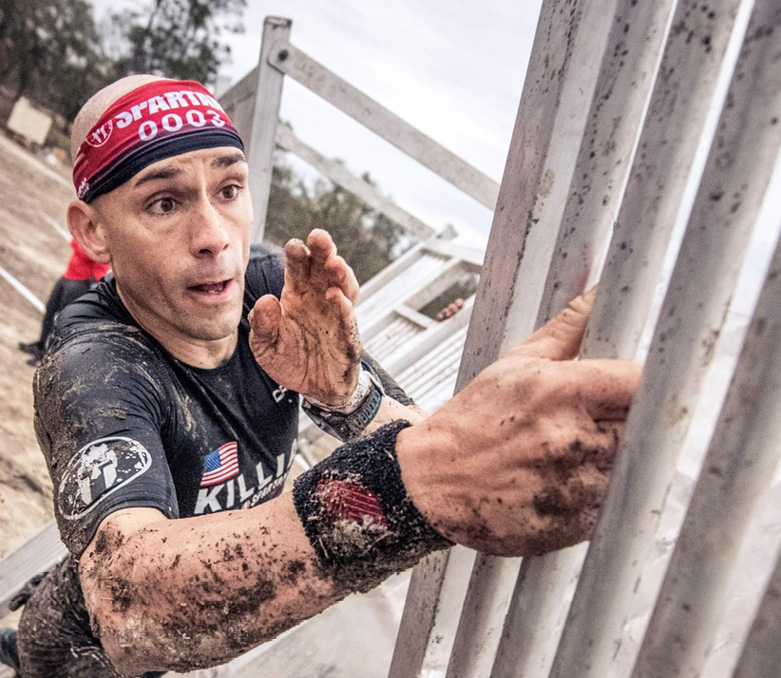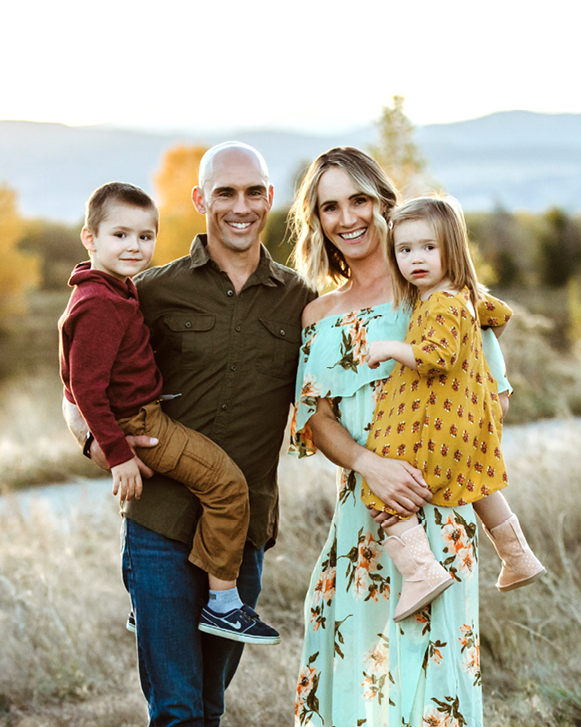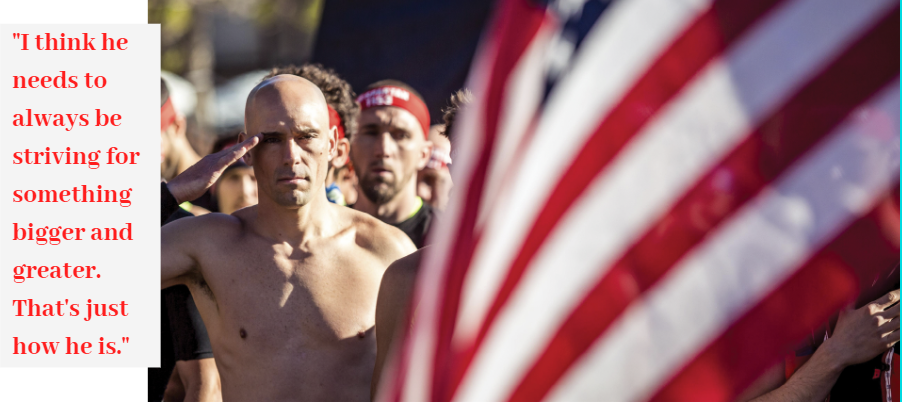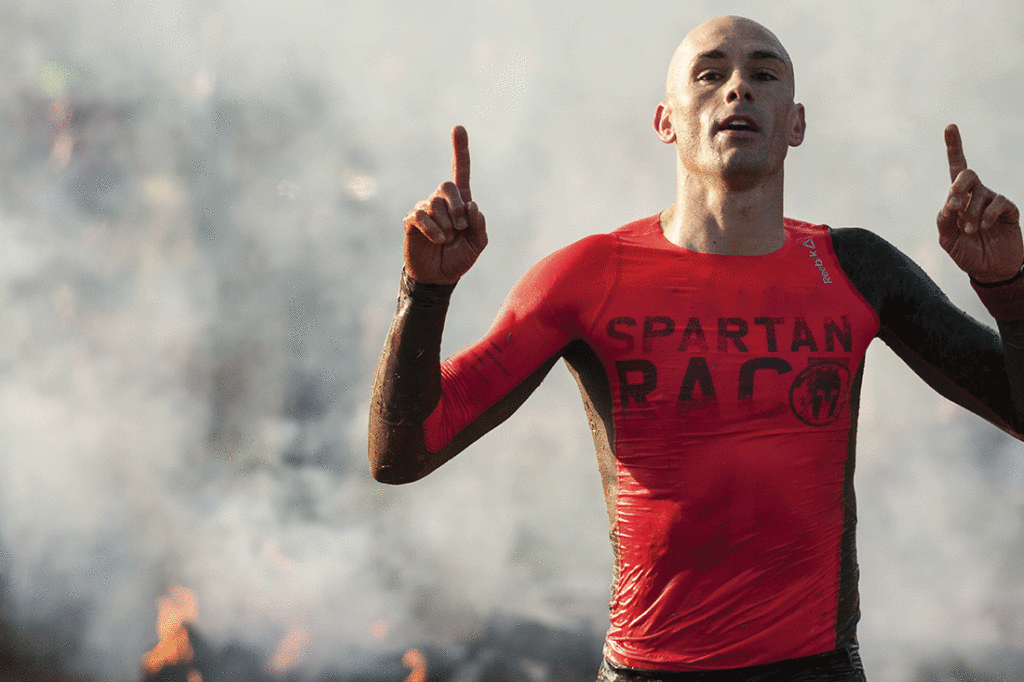When Green Beret Rob Killian arrived at the combat water survival test, the next to last event in the 2016 Best Ranger Competition, he should have been physically spent. In the previous 56 hours, he had put roughly 60 miles on his feet, most of it carrying at least 35 pounds, and had slept only in scant patches, if at all. Fueled only by his determination to win the BRC, arguably the most prestigious athletic event in the Army, he kept going.
The combat water survival test is one of the most challenging in the entire competition and certainly the most harrowing. Competitors must scale a ladder to 30 feet above Victory Pond, cross a bridge that is a foot wide and 34 feet long with two steps in the middle, then shimmy down a diagonal rope before dropping into the water. Then they swim to shore, run to the top of a tower that is several stories high and zip line their way down, with only the strength in their arms keeping them aloft.
Most competitors, when they get to the top of the ladder, stop, take a deep breath, then walk gingerly and slowly across the bridge. But Killian is not most competitors.
He and his teammate had entered the combat water survival test in second place, and the only way to jump to first was to have a blazing fast time in the event (the competition comprises many events, each scored individually to create a cumulative total). Killian would rather have fallen off the bridge in pursuit of victory than played it safe and finished second for the third straight year. That’s why, when he stepped off the ladder, he walked briskly, then jogged, then ran the last few steps before jumping onto the rope.
You get caught up in the moment,” says Killian, the 2015 Spartan world champion. “I call it race brain. You don’t have a lot of fear. You just act on pure adrenaline. You look back and say, ‘Whoa, did I really do that?’ ”
 ©Greg Riviotta
©Greg Riviotta
His wife, Maxine, says that for her husband, the worst possible result would be to finish second and wake up in the middle of the night with nagging second-guesses in his head. “The potential outcome of him succeeding and possibly winning the event, outweighs the thought of, OK, I’m going to probably severely hurt myself,” she said.
The athletes who have competed with and against Killian marvel at his speed, strength, endurance and athleticism. They call him a “beast,” and a “gazelle” and “superhuman.” All those labels miss the point, ever so slightly, of what makes him a world-class athlete capable of feats like the display at the BRC. The trait underneath it all—the trait that makes it possible for him to train enough to attain that speed, strength, endurance and athleticism—is his determination.
* * *
Killian, 37, is a solopreneur with a unique set of gigs: He is a professional obstacle course racer, and his race winnings form part of his income. He has sponsors who pay him to tout their wares. He trains athletes. He has appeared on reality shows, including Million Dollar Mile. And he serves in the California Army National Guard.
“You always have to add that next benchmark because your competition is also getting stronger and better.”
The challenge for Killian is finding the right balance between all of those. The sponsorships pay the bulk of his income, but his performance in races is more important. The better he performs, the higher his profile, which draws both sponsors and new coaching clients.
The irony of a strong performance is that it means he has to spend more time on non-training tasks. He spent six hours one day in August making travel plans for events in Sweden and Greece. He would have much rather spent that time running, swimming or biking.
Injury is a concern, too. He has to guard against overtraining and take time off if he gets hurt. He sees knowing when to take time off for injury as a key line between determination and obsession, and it’s both a business and personal concern.
 ©Bronwyn Nicholson
©Bronwyn Nicholson
His athletic career began modestly: When he was in middle school in South Carolina, a coach told him he wasn’t fast enough. Using that slight as motivation, he starred in track in high school and college and became a triathlete in the mid-2000s. He trained for his first IRONMAN competition while deployed to Iraq in 2007 and 2008. He worked as a communications officer during the day and ran at night.
In 2010, he competed in the IRONMAN world championships in Hawaii and was the top finishing member of the military. That same year, he was named the U.S. Army Athlete of the Year. In 2015, he won the Spartan world championship, one of the most prestigious accolades in obstacle course racing.
Killian shaves his head and wears an intense expression while he’s competing. When he smiles, dimples flash across his cheeks. He’s lithe and laid back. But his skinny frame hides his powerful arms, legs and core, and his quiet demeanor conceals a fierce competitive streak.
He and those who know him trace his outsized determination to three primary sources: His desire to prove doubters wrong, his love for setting audacious goals and reaching them, and his drive to make his kids and family proud of him.
Anybody can be determined when they’re seconds from the finish line at the Best Ranger Competition or the Spartan world championship. It’s significantly more difficult to be determined when you are training for those events. Killian’s preparation for obstacle course races is an intense mixture of running, biking and weight work. Even what he calls the “cool down” at the end of each workout is hardcore: He carries a 100-pound sandbag up and down a steep incline in the mountains near his home in Colorado.
“I don’t believe you can train that amount of determination into somebody,” says U.S. Army Sgt. Major (Ret.) John Burns, who coached Killian and other National Guard soldiers for the BRC. “He has the ability to take that determination and just laser focus. I look at it in admiration.”
Killian constantly tries to one-up himself—set faster times, complete more reps, whatever. “I’m always asking myself, ‘What’s the next hardest thing I can do?’ ” he says. “You always have to add that next benchmark because your competition is also getting stronger and better.”
With Killian’s success in Best Ranger and Spartan races has come fame among fans of those sports. He joined social media to grow his audience, and is thinking about writing a book. He uses his growing influence to draw attention to issues that are important to him, such as veteran suicide. Several men have told him they joined the National Guard because of him. “That’s super rewarding to hear stories like that,” he says.
And it’s another source of his resolve. He wants to prove himself worthy of his fans’ support, and give them something new to cheer about.
* * *
While the things he must complete as an obstacle course racer have little in common with a solopreneur who works in a more conventional field, the reasons he excels are largely the same as anyone else. He prepares. He thinks deeply about his tasks, before, during and after he attacks them. He tries to learn from his mistakes.
He shines when he’s an underdog, although his days as one are largely, if not entirely, gone. When he entered the Spartan world championship in 2015, it was just his fourth obstacle course race.
 Courtesy of Spartan Race
Courtesy of Spartan Race
“Nobody even knew who he was,” says Maxine. “Who the hell is Robby Killian?”
And yet there he was, nearing the end of the event, in first place entering a downhill run. “Race brain” took over as he ran as fast as he could down the hill, dodging rocks and roots along the way. Someone told him later that smoke was coming off of him as he ran, and it’s hard not to think the person meant that literally.
The last obstacle of the event is called a double rig. It’s basically a long set of monkey bars, at the end of which is a bell that competitors must ring. After the bell is rung, the distance to the finish line is minimal, 50 yards or so.
He arrived at the rig unsure of the rules. He had read them beforehand, but they were unclear. Was he allowed to skip any of the hand holds? Or did he have to touch each one? He skipped one, and then to be safe, backtracked and touched it.
He arrived at the bell with his arms exhausted. He didn’t have enough strength left to lift himself up to hit the bell with his hand. His only option was to swing his legs up and kick it. The danger was missing and falling off the rig. The resulting penalty (30 burpees) would have let the second-place competitor pass him. “It was one shot,” he said. “This is all you get.”
He zeroed in on the bell. He swung back to pick up momentum, pumped his hips, kicked his left leg as high as he could and CLANG!
Dropping to the ground, he raised his hands in victory—a rare show of emotion. He crossed the finish line a few seconds later, and Maxine put their young son into his arms, creating an unforgettable family highlight for all of them.
Since that win, Killian has finished in third place in the world championship event three straight times. That’s good, of course, but good is not why he competes. He competes to win. Backing up that win with another is high on his to-do list
“I’m sure once he wins it, he’ll have the next goal the very next morning,” Maxine says. “I think he needs to always to be striving for something bigger and greater. That’s just how he is.”
* * *
Back to the 2016 Best Ranger Competition: After the dominant display in the combat water survival test, Killian and his teammate, Erich Freidlein, a staff sergeant in the Pennsylvania Army National Guard, entered the final event, a Buddy Run, with the lead. All they had to do was finish in front of the second-place team, and they would win.
The run followed a road in Fort Benning, Georgia, home to the Army base that hosts the BRC. Maxine ran on the grass alongside the road, shouting encouragement. Killian placed his hand on Freidlein’s back, propelling him forward. They pulled out to a big enough lead that they could have coasted to the finish, and near the end, they probably could have walked.
But Killian refused to let up. Every time Freidlein turned around to see where the second-place team was, Killian shouted “Don’t look back! They’re right behind us!” even though that wasn’t remotely true.
The biggest win of his career—then, now, probably ever—was minutes away, and Killian was taking no chances. They could not slow down, they would not slow down, no matter what. They would soon become the first (and still only) National Guard members to win the BRC in the 36-year history of the event, and he insisted that they keep their eyes forward.
It may be his best lesson on determination: Never look back.
This article originally appeared in the November/December 2019 issue of SUCCESS magazine.
Main photo courtesy of Spartan Race





